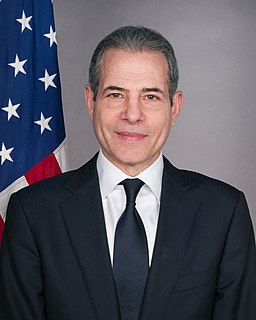A Quote by Gladys Berejiklian
I accept you need the right balance, people do need to know their privacy is protected, but when it's essential information which will be dealt with by security agencies... I do feel the public interest overrides that.
Related Quotes
The trouble is that privacy is at once essential to, and in tension with, both freedom and security. A cabinet minister who keeps his mistress in satin sheets at the French taxpayer's expense cannot justly object when the press exposes his misuse of public funds. Our freedom to scrutinise the conduct of public figures trumps that minister's claim to privacy. The question is: where and how do we draw the line between a genuine public interest and that which is merely what interests the public?
I believe there are a lot of questions today that require expert analysis by various agencies: political agencies, foreign ministries, economic agencies and security agencies. We need to assess everything and understand what we can agree on and what the implications will be both for Japan and for Russia so that both the Russian people and the Japanese people come to the conclusion that these compromise solutions are acceptable and are in our countries' interests.
The government's assertion that it must be unhindered in protecting our security can camouflage the desire to increase Executive power, while the press's cry of the public's right to know can mask a quest for competitive advantage or a hidden animus. Neither the need to protect our security nor the public's right to know is a blank check.
I think that in an age where so much information is flying through cyberspace, we all have to be aware of the fact that some information which is sensitive, which does affect the security of individuals and relationships, deserves to be protected and we will continue to take necessary steps to do so.
I don't think he would have had any trouble answering Justice Sonia Sotomayor's excellent challenge in a case involving GPS surveillance. She said we need an alternative to this whole way of thinking about the privacy now which says that when you give data to a third party, you have no expectations of privacy. And [Louis] Brandeis would have said nonsense, of course you have expectations of privacy because it's intellectual privacy that has to be protected. That's my attempt to channel him on some of those privacy questions.
I often need physical gesture to balance dialogue. If I write in public, every time I need to know what a character is doing with his hand or foot, I can look up and study people and find compelling gestures that I can harvest. Writing in public gives you that access to a junkyard of details all around you.

































